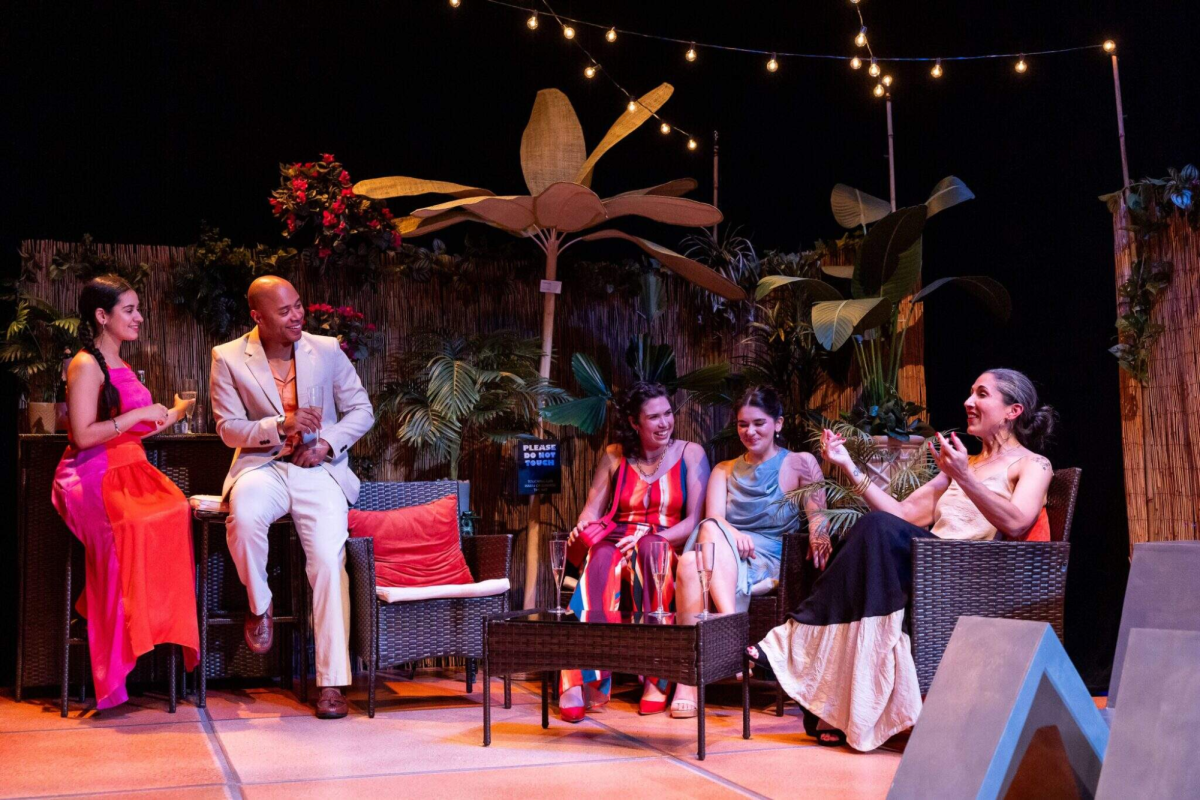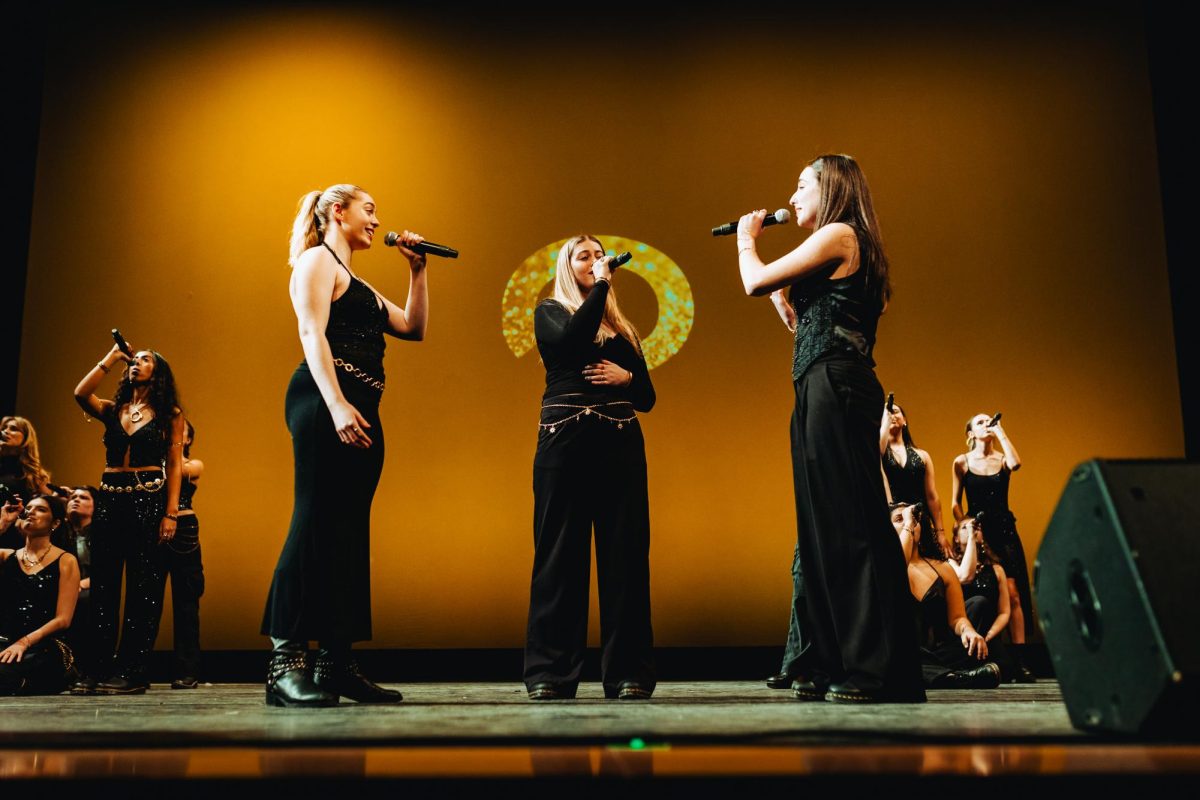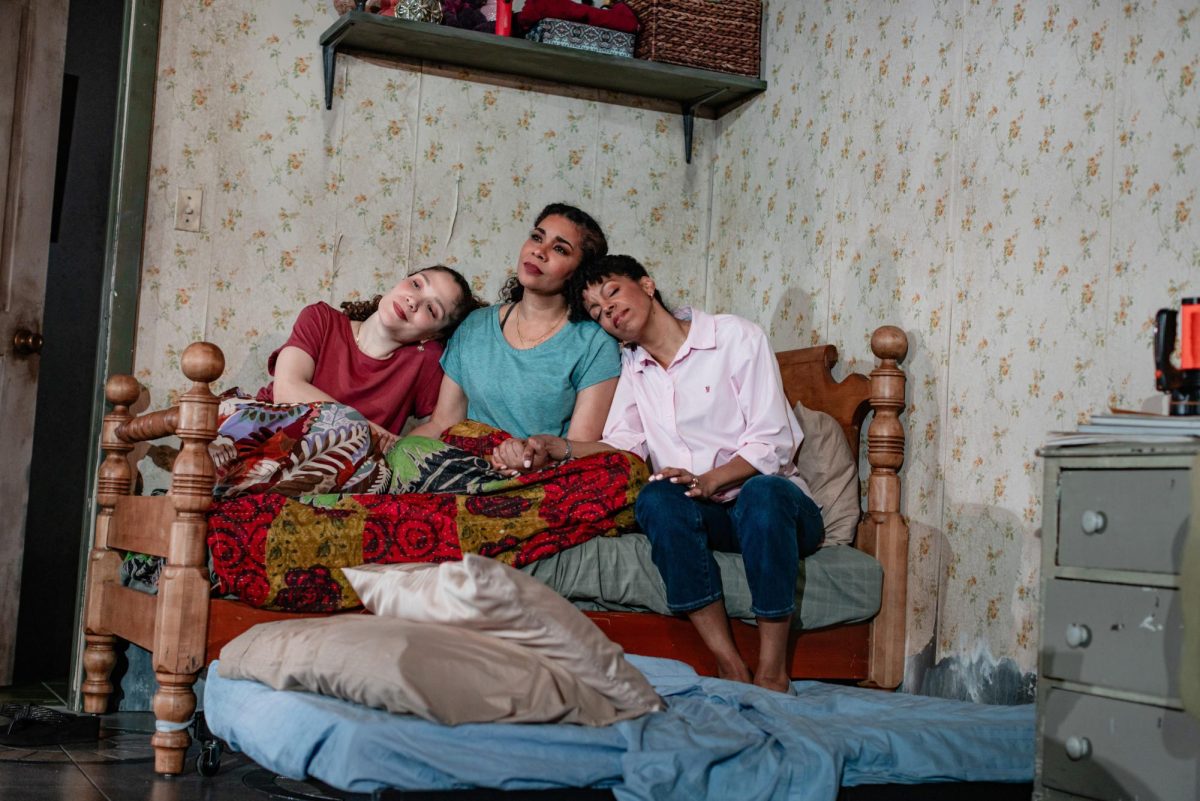SpeakEasy Stage Company opened its 34th season with Alexis Scheer’s “Laughs in Spanish,” a culturally rich telenovela mystery which debuted Sept. 13 at the Roberts Studio Theatre. “Laughs in Spanish” is the company’s first production of the 2024-25 season, and it did not disappoint.
The play centers around Mariana, or “Mari” (Rebekah Rae Robles), a Miami art gallery director who is slated to open at Art Basel, a career-changing art fair. Not yet established in the art world, Mari is extremely frazzled when all of the gallery’s artwork is stolen the night before the show. She immediately goes into panic mode, turning to her intern and painter Carolina, nicknamed “Caro” (Luz Lopez), and Caro’s police officer boyfriend, Juan (Daniel Rios Jr.).
Adding to the telenovela-style drama, Mari’s previously absent movie star mother Estella (Paola Ferrer) arrives in Miami. Alongside the drama of the main plot line, Mari and her mother face tension within their relationship throughout the play. Estella is a hands-off mother, constantly chasing her Hollywood dreams. Though she hoped this would allow Mari to build her own brand, it instead resulted in Mari’s feelings of abandonment. Toward the end of the play, Estella has a long monologue, detailing how she became the mother she is today. As the play concludes, Mari finally understands that her mother has made so many sacrifices, including marrying her father. Ferrer’s monologue seamlessly concluded the biggest conflict of the play: Mari and Estella’s rocky relationship.
Perfectly executed, the stage and set design was split into three settings, including both the exterior and interior of the gallery and its outdoor patio. The relatively small stage never felt crowded thanks to the warm lighting, plants and myriad warm-colored couches. The costume design greatly complemented the atmosphere as well, with the cast’s brightly-colored clothes making them pop like their characters’ outgoing and bubbly personalities. Notable outfits included Mari’s chic gray suit and shimmery teal dress, Estella’s red-orange and tan dresses and Caro’s matching teal set. Paired with her outfit, Mari’s messy yet pretty updo elevated her look and was symbolic of the growing stress and pressure around the gallery and her mother, who always held her to the highest standards.
Despite the play’s dramatic nature, the code-switching and Spanglish ensured the dialogue felt authentic. Compared to her father and Estella’s ex-husband, who is Jewish, it is clear that Mari inherits more of her mother’s heritage, often speaking and cursing in Spanglish. Additionally, all the characters — except for Juan, at least — struggle with getting their Alexa smart device to understand their accents. It is a constant running joke in the play, but a reality that people with Spanish accents have to put on an American accent when speaking to the device or answering the phone.
While everyone performed their characters’ roles beautifully, one actor stood out. Ferrer was made for her role. She embodies Estella with all the little quirks, grand hand gestures and her thick accent. It was clear that her character, although absent as a mother, still loved her daughter. Although people could resent Estella’s character for being self-absorbed and too focused on her reputation, Ferrer’s nuanced and dimensional performance made her hard to hate.
Mari’s sexuality isn’t a main focus in the story, so it made sense that “Laughs in Spanish” was not marketed as a queer love story. In the play, Mari and Jenny (Brogan Nelson), Estella’s personal assistant, fall in love after they are reconnected from their high school days. Each of their performances complemented the other, especially with Jenny’s uncontained excitement. It was refreshing to see LGBTQ+ characters integrated into a theatre production that did not revolve around that storyline.
At times, however, it felt as though there were too many subplots, each fighting for attention within the 90-minute play. In exchange for a secret of Juan’s, Caro reveals she is pregnant, a detail that lacks purpose and minimally adds to the overall plot. Additionally, Mari and Jenny’s romantic relationship, although adorable, was not fleshed out enough. It was hard to see the intersection between their relationship and the main conflict of Mari and her mother.
“Laughs in Spanish” was a great watch, with any weak points mostly fading into the background. The theatre transported spectators into the setting smoothly, especially when the play was spruced with bits of Latin music and salsa dancing. People from different backgrounds can enjoy this play, and perhaps, laugh in Spanish, or whatever language one speaks.
“Laughs in Spanish” will run at the Roberts Studio Theatre until Oct. 12.











